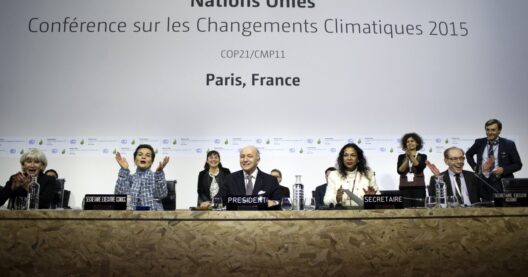Global warming is one of the most pressing challenges facing humanity today. The gradual rise in Earth’s temperature, primarily due to human activities, has profound implications for ecosystems, weather patterns, and sea levels. While the scale of the crisis can be daunting, there are numerous strategies that individuals, communities, and governments can adopt to combat global warming effectively. This discourse explores feasible approaches, highlighting their importance and potential impact.
One of the most critical aspects of addressing global warming involves transitioning to renewable energy sources. The burning of fossil fuels for electricity and heat is the largest single source of global greenhouse gas emissions. By investing in solar, wind, and hydroelectric power, society can significantly reduce its carbon footprint. Solar energy, in particular, has seen dramatic reductions in cost and improvements in efficiency in recent years. This transition not only mitigates emissions but also enhances energy security and creates employment opportunities in the green energy sector.
Moreover, energy efficiency plays a pivotal role in curtailing global warming. The implementation of energy-efficient technologies in industrial processes, transportation, and residential buildings can drastically lower energy consumption. For instance, the adoption of LED lighting, high-efficiency appliances, and better insulation can lead to significant reductions in energy use. Encouraging energy audits and offering tax incentives for efficiency upgrades can accelerate this transition, fostering a culture of sustainability.
Transportation is another key area where significant improvements can be made. The transportation sector is a major contributor to greenhouse gas emissions, primarily due to the reliance on gasoline and diesel-powered vehicles. Introducing electric vehicles (EVs) can be a transformative step. Governments can stimulate this transition by enhancing the necessary infrastructure, such as charging stations, and providing incentives for EV purchases. Public transportation systems should also be bolstered, as they offer a low-emission alternative to personal vehicle use. Increasing investments in cycling and pedestrian pathways can further promote sustainable modes of transport.
In addition to renewable energy and efficient transportation, sustainable land use practices are crucial in combating global warming. Deforestation contributes significantly to carbon emissions, as trees act as carbon sinks. By promoting reforestation initiatives and responsible land management, we can restore ecosystems and enhance biodiversity. Agroforestry, which combines agriculture and forestry, is an innovative approach that not only sequesters carbon but also improves food security and livelihoods. Sustainable agriculture practices, such as crop rotation and organic farming, can further mitigate emissions while enriching soil health.
Waste reduction is a vital yet often overlooked aspect of climate strategy. The majority of waste decomposes in landfills, releasing methane—a potent greenhouse gas. Implementing comprehensive recycling and composting programs can alleviate this problem. Zero-waste initiatives encourage businesses and individuals to minimize their waste output, promoting a circular economy. By redesigning products for longevity and recyclability, communities can substantially diminish their environmental impact.
Moreover, climate education is an essential strategy that tends to be underappreciated. By fostering awareness of climate issues in schools, workplaces, and communities, we can empower individuals to take actionable steps towards mitigation. Educational initiatives can emphasize the importance of conscious consumerism, conservation, and community engagement. When people are equipped with knowledge, they are more likely to advocate for sustainable policies and practices.
Policy plays a crucial role in the fight against climate change. Governments must commit to ambitious climate targets, as outlined in international agreements like the Paris Accord. Implementing carbon pricing mechanisms, such as cap-and-trade systems or carbon taxes, incentivizes industries to decrease their emissions. Furthermore, policy frameworks should support renewable energy development and prohibit environmentally harmful practices. Political will is essential to drive the necessary changes across all sectors.
Civic involvement is equally important in the fight against climate change. Grassroots movements and local organizations can hold businesses and governments accountable, ensuring that they adhere to climate commitments. Public demonstrations, petitions, and advocacy campaigns can amplify voices advocating for a sustainable future. When citizens unite, they can wield considerable influence, prompting systemic change at all levels.
Furthermore, global collaboration is critical in addressing an issue that transcends national borders. Climate change is a global problem necessitating concerted efforts among countries, particularly those most affected. Sharing technology, resources, and knowledge can bolster the endeavors of developing nations facing the brunt of climate impacts. Funding and support for climate adaptation and mitigation measures in vulnerable regions is a moral imperatives as well as a practical necessity.
Ultimately, slowing down global warming requires a multifaceted approach drawing from various sectors. Individuals play a role, but collective action through policy, education, and community involvement is essential for creating meaningful change. As we innovate and adopt these strategies, we foster resilience against climate threats while aspiring toward a sustainable and equitable world. By prioritizing these efforts, we embrace a formidable commitment to preserving our planet for future generations.
The integration of these approaches into daily life signifies not just an obligation but a profound opportunity. Humanity stands at a crossroads, and the choices made today will indelibly shape the planet’s trajectory. Conscientious decision-making, coupled with ambitious policies and community action, can help ensure that future generations inherit a livable world. Such transformation begins now, with a collective determination to combat global warming and safeguard our planet’s future.







